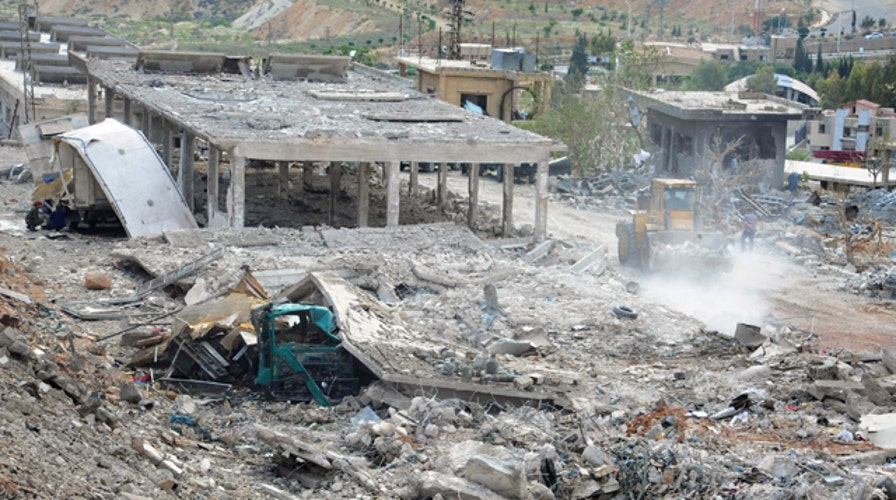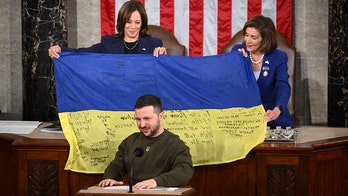Could Israeli airstrikes benefit Assad’s regime?
Col. Cedric Leighton on the possible threat to regional stability
A top Senate Democrat nudged the Obama administration to provide weapons to the Syrian opposition, introducing a bill Monday that would explicitly allow the U.S. to provide arms, military training and non-lethal aid to the rebels.
Sen. Bob Menendez of New Jersey, chairman of the Senate Foreign Relations Committee, introduced the legislation on the heels of U.S. intelligence claims that chemical weapons likely were used in the country.
"The Assad regime has crossed a red line that forces us to consider all options," Menendez said in a written statement. "The greatest humanitarian crisis in the world is unfolding in and around Syria, and the U.S. must play a role in tipping the scales toward opposition groups and working to build a free Syria."
President Obama has called the use of chemical weapons a "red line," but in light of the latest intelligence assessment he has urged caution - saying investigators don't yet know enough for the findings to warrant a specific U.S. response.
The administration, though, has said it is considering arming the opposition.
This is a step some lawmakers, like Sen. John McCain, R-Ariz., have been urging the U.S. to take for months. But amid claims that extremist elements have infiltrated parts of the anti-Assad forces, any effort to arm the groups would come with inherent risk that weapons could fall into the wrong hands.
Menendez's office claimed his bill would require any group receiving arms to go through a "thorough vetting process." Without getting into detail, his office said those groups would have to "meet certain criteria on human-rights, terrorism, and non-proliferation."
The bill also would create a $250 million fund to assist the country in a transition after the end of the Assad regime. The measure would give the U.S. government the power to sanction any individual who sells or transfers military equipment, weapons or oil to Assad.
The legislation was introduced amid conflicting accounts over the investigation into chemical weapons use.
Carla Del Ponte, a member of the U.N. commission looking into the alleged use of the nerve gas sarin in Syria, said Sunday that opposition forces - and not the Assad regime -- may have been the ones who used the weapons. According to Reuters, she told Swiss-Italian television there are "strong, concrete suspicions but not yet incontrovertible proof" of sarin gas being used. She said it was "on the part of the opposition, the rebels, not by the government authorities."
But the White House and Pentagon sharply challenged the claim.
"The commission has not reached any conclusive findings. The fact of the matter is that we are highly skeptical that the opposition has used chemical weapons," White House Press Secretary Jay Carney said Monday.
He claimed it's most likely the Assad regime was behind any weapons use.
The U.N. commission investigating the attacks also watered down Del Ponte's comments in a written statement Monday, as they came under increasing scrutiny. The Independent International Commission of Inquiry on the Syrian Arab Republic said it "wishes to clarify that it has not reached conclusive findings as to the use of chemical weapons in Syria by any parties to the conflict."
Carney said the U.S. is still looking for conclusive evidence about chemical weapons use in Syria. He said there is no timeline for the investigation.
Secretary of State John Kerry was leaving for Moscow on Monday to discuss the situation in Syria with Russian President Vladimir Putin.
"We have consistently, in our conversations with the Russians and others, pointed clearly to Assad's behavior as proof that further support for the regime is not in the interest of the Syrian people or in the interest of the countries that have in the past supported Assad," Carney said. "We have been clear in the past about our disappointment with Russia over their opposition to resolutions at the Security Council with regards to this matter. But this is an ongoing conversation."
The Associated Press contributed to this report.





